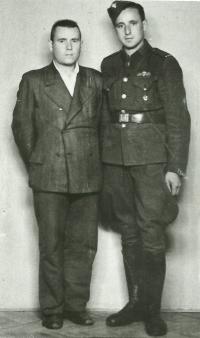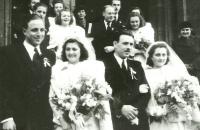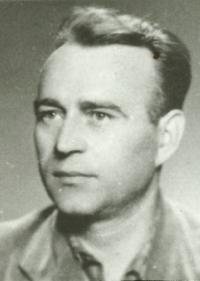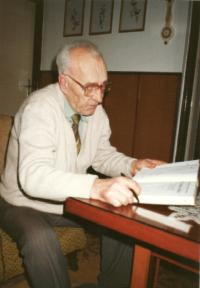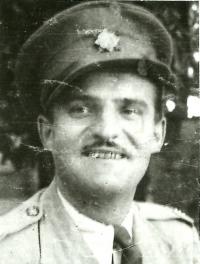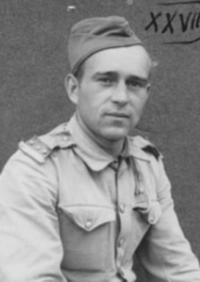You have to live it, otherwise you will not believe it

Download image
Colonel in retirement Jozef Haríň was born October 11, 1921 in Ružomberok in the then Czechoslovakia. He attended an elementary school, apprenticed as a car repairman and then he went to work in the textile factory in Rybárpole near Ružomberok. On September 10, 1941 he was drafted to the Slovak army where he served in the 1st motorized battalion in Nitra, and after passing a course for truck drivers he was assigned to the 11th motorized battalion in Banská Bystrica. From January to July 1942 he served as a stock keeper of spare parts in the motorized battalion in Prešov. In July 1943 he was transferred to the Slovak security division in Minsk in Belarus, but already in September 1943 he was ordered to return and he was sent to Italy to the operating technical division, where he served as a truck driver in a logistics store. In March 1944 he defected to the American army near Monte Cassino in central Italy and he was interned in an assembly camp near Naples. From April to June 1944 he stayed in the Czechoslovak mission in Bari in southern Italy where his superiors decided to assign him to a special task force. For Jozef this decision meant that he became a candidate for paratrooper deployment to the Protectorate Bohemia and Moravia. From June to July 1944 he went through paratrooper and combat training in the English-American camp in Brindisi in southern Italy and from July to December 1944 he was trained in intelligence operations and cryptography in the Czechoslovak military mission in Bari. He was assigned to the paratrooper group Embassy and on December 21, 1944 he was parachuted to the Protectorate together with Karol Mladý and Jan Grajzel. They were supposed to land near the village Břez near Kroměříž, but by mistake they were dropped near the village Prostějovičky by Prostějov. Jozef Haríň managed to get reunited with Karol Mladý after landing, but they lost contact with Jan Grajzel who carried all necessary material, including the radio station. Karol Mladý and Jozef Haríň therefore decided to walk to the village Břez and they planned to contact the people living in the first contact address they were given. However, they did not succeed and their attempt to contact the second address in Horní Bečva near Rožnov pod Radhoštěm failed as well. The paratroopers thus decided that they would move to Slovakia. Karol Mladý, who had already been wounded in another gun-fight, did not survive a gun battle with Gestapo members on the Moravian-Slovak border. Jozef Haríň escaped, but he sustained a penetration wound in his leg. Thanks to the help of a local game keeper he eventually managed to get to Soviet partisans and he joined the partisan group Rodina (‘Family’) that operated in the area between Velká Bytča and Makov in western Slovakia. At first he served as the unit’s commander and later also as the commander of a reconnaissance company. Later they joined the 1st Czechoslovak army corps; Jozef served in the corps from May to June 1945 and he went with them all the way to Prague. After the war he completed a school for officers and in 1946 he left the army. He returned to Ružomberok and he did a clerical job. He died on June 22, 2007 in the Slovak village Štiavnička near Ružomberok.
